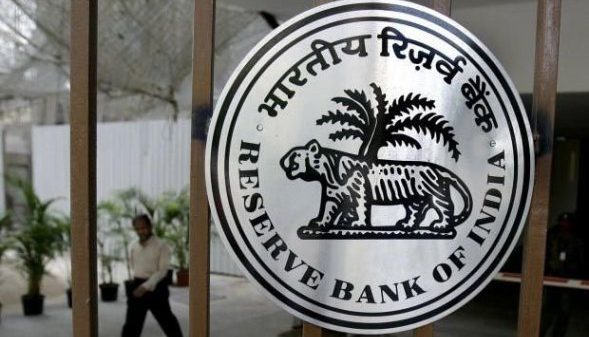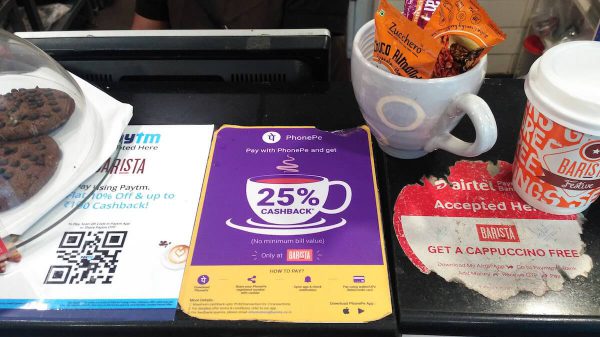The National Payments Corporation of India (NPCI) has instituted a three-tier mechanism that will monitor the market share of third-party apps on the Unified Payments Interface (UPI) network. If a player breaches the market share threshold set, they will have to scale back their on-boarding, promotional activities and cash back offers, the NPCI said in a Standard Operating Procedure.
In November last year, the NPCI introduced a market share policy curbing an individual UPI players’ market share to 30% from January 1 this year onward. This was done in order to “address the risks and protect the UPI ecosystem.” The UPI space is dominated by PhonePe and Google Pay. As of February 2021, PhonePe a market share of 44% , while Google Pay had a 40% market share.
“When we look at the future of UPI, reaching to billion transactions a day, there is a need to smoothen out all the transactions in the UPI ecosystem. One such effort was UPI multi-bank model, which was implemented to mitigate the risks on the banks by means of mandating large TPAPs for the UPI access. The suggested measures in this SOP, shall also encourage the new players to increase their volumes in UPI, so as to even out the distribution of market share among all participants.”— NPCI Circular
The new system has been designed keeping customer convenience in mind, the NPCI said in its circular dated March 25, 2021.
How will it work?
- Level 1: If the UPI app’s market share is between 25-27% in any particular month, the NPCI will send an “alert” to the third-party player and its payment service provider bank, which they must “acknowledge”.
- Level 2: If the UPI app’s market share is between 27.1-30%, a second alert will be sent to the app and the bank, and they have to provide “evidence” of actions taken to comply with the volume cap.
- Level 3: If the UPI app’s market share exceeds 30%, the app and their banks must stop on-boarding of new customer and provide an undertaking to the NPCI that they are working towards complying with the volume cap. The NPCI can offer an exemption to UPI players to ensure there is a sm0oth implementation of the on-boarding restrictions.
- Players should ensure that transactions of existing users are not declined.
- Existing UPI players, whose market share as of December 31, 2020 exceeds 30%, will have two years to comply with the new policy. The NPCI will review their compliance on a half-yearly basis from January 2022 onwards.
- The NPCI has also asked UPI players to send a message to their customers, in case they have to moderate or halt new customer on-boarding. The format for which is:
“Dear user, as per NPCI rules any UPI app with more than 30% market share cannot onboard new customers until their market share goes down. Currently, <App name’s> UPI market share is <XYZ>% so unfortunately, you’ll have to wait a while before you can access our UPI services. We apologize for the inconvenience and promise to notify you as soon as NPCI allows us to onboard you again!’”— NPCI Circular
How is market share calculated?
- Total UPI volumes
- This includes all Person-2-Person, Person-2-Merchant and Person-2-Person/Merchant transactions conducted through various modes like Push, Intent, QR or any other future modes on UPI. It included Business-2-Business and Business-2-Consumer transactions.
- All payments to UPI IDs, including bank accounts, one-time mandates, recurring payments, payments to pre-paid instruments and other account types, will be included in the calculation.
- Calculated on a three-month rolling basis
- TPAP UPI volumes:
- The same variables and transaction types will be included in calculating the volumes processed by a third-party UPI player.
- Pre-approved B2B and B2B transactions, like cashbacks and reward, will not be used to calculate the third-party UPI players’ transactions, while it is considered as part of the total UPI transaction volumes.
- For UPI players with multiple anchor banks, the cumulative volumes of transactions initiated by their handles will be considered as part of their total UPI volumes
- Calculated on a three-month rolling basis
- Market share:
- The market share of a third-party UPI player will be calculated based on the payer UPI side, that is from the handles initiating transactions.
- Calculated as the percentage share of UPI volumes processed by a particular player out of the total UPI volumes in that same three-month period
- Customers:
- When a new customer is on-boarded, they will be identified through the device binding initiation request which is sent by by the third-party player UPI app to the bank.
- Existing users can initiate a new request, to create a new handle, upgrade the app or due to change of phone.
- They will not be considered as new customers and will be allowed on-board, even if the third-party player has been instructed to moderate new on-boarding
- On-boarding:
- Moderate on-boarding means accepting or allowing up to 50% of total new customer on-boarding requests that a third-party UPI player receives
- Calculated on a three-month rolling basis
- NPCI will review the action plan of the third-party UPI player and their bank. If the plan is approved it will allow the companies to implement their moderate on-boarding process
What are the exemptions?
The NPCI said that it will provide exemptions on a case by case basis, based on the recommendations from the banks and by studying the impact on the ecosystem. The exemption can be provided for a maximum of six months, it said.
- During exemption, if the third-party player is in breach of the market share cap, they may be asked to immediately moderate the on-boarding of new customer along with a plan to remedy the non- compliance to be reported to NPCI within 5 working days from the date of notification.
- If the exemption is approved by the NPCI, third-party players will have to on-board new customers only through a moderate manner. But if they breach this rule, the NPCI will issue a notice to the UPI player to stop all on-boarding.
- NPCI can offer additional time for the UPI player to comply with its notices to reduce or stop on-boarding in order for the players’ market share to reduce.
“The provision of Exemption will ensure that existing users are not put to inconvenience and new customer on-boarding is also not fully shut as mentioned in this SOP. This provision may help TPAP to continue to maintain the trust, while working towards to achieve the compliance.”— NPCI Circular
Other aspects
- The standard operating procedure will be reviewed every six months, and if required it will widen the applicability of the volume cap policy to other players as UPI grows.
- NPCI will share details of the third-party players’ volumes, their compliance and the actions taken with the Reserve Bank of India
- In case of non-compliance, the NPCI will penalise the UPI app player as under existing regulations.
- The NPCI will also block any new user on-boarding for a third-party player from its central UPI system, if these rules are not followed.
Also Read
- Google Pay plans to hand users more control over financial data
- Under pressure, NPCI has lots of work in order to compete with NUEs: Dilip Asbe
- PhonePe continues to dominate UPI market while WhatsApp Pay grows 2x













